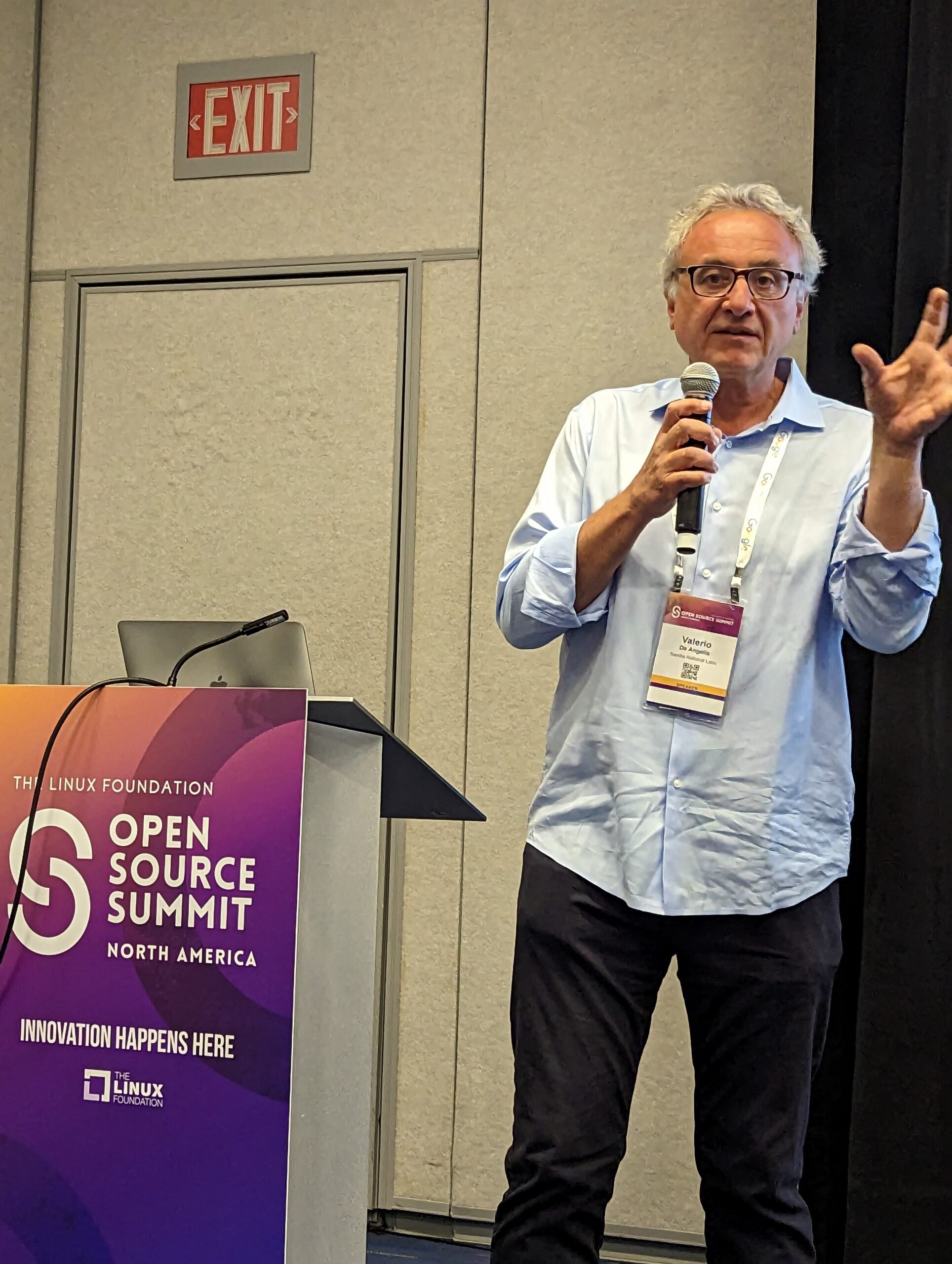SustainabilityCon 2023 Recap: Revolutionizing Battery Systems through Open-Source Development – Insights from Dr. Valerio De Angelis
In his session at SustainabilityCon North America 2023, Dr. Valerio De Angelis, an expert in battery systems development and operations at Sandia National Laboratories, shared his experiences and insights on the importance of open source initiatives in revolutionizing the battery industry (video below). His talk shed light on the challenges faced in the sector and highlighted the potential of standardization and collaboration to accelerate progress. Here are the key takeaways from his session:
- Lack of Standardization Hinders Progress:
The battery industry has been plagued by slow development due to a lack of standardization. Different layers of battery systems are built by various entities in incompatible ways, hampering interoperability. Moreover, companies often consider their technology and software proprietary, hindering collaboration and hindering industry-wide advancements.
- Imbalances in the Electric Grid:
The rise of electric vehicles and residential solar installations has introduced imbalances in the electric grid. During peak hours, when solar production decreases and people return home to charge their vehicles, the demand for electricity surges, straining the grid. This has highlighted the need for robust power electronics and converters to stabilize the grid and ensure smooth operation.
- Complexity in Power Converter Control:
Controlling power converters, which convert AC to DC and vice versa, is a complex task. With hundreds or even thousands of components involved, a simple mistake can lead to malfunctions or even the destruction of devices. The challenge lies in developing software that can effectively manage and control these intricate power converter systems.
- Managing Battery Systems:
Battery management poses another significant challenge. Lithium-ion batteries, a crucial component in battery systems, age over time, leading to varying performance and potential failures. Managing large-scale installations with hundreds of thousands of batteries becomes daunting. Standardization and open source development can provide a solution by establishing a common framework for battery systems to interact and be managed efficiently.
- The Power of Open Source:
Embracing open source initiatives can be a game-changer for the battery industry. By sharing software and hardware designs, the industry can foster collaboration, accelerate development, and ensure compatibility across different systems. De Angelis emphasized the need for open source platforms and the sharing of battery data to enable better predictive models and improve battery life estimation.
Overall, Dr. De Angelis’s session shed light on the critical challenges faced by the battery industry and highlighted the potential of open source development and standardization to overcome these hurdles. Collaborative efforts, sharing of software and hardware designs, and the establishment of common frameworks will pave the way for a more efficient and rapidly evolving battery industry. By embracing open source initiatives, the industry can unlock new possibilities, facilitate innovation, and drive the widespread adoption of clean and sustainable energy solutions.
